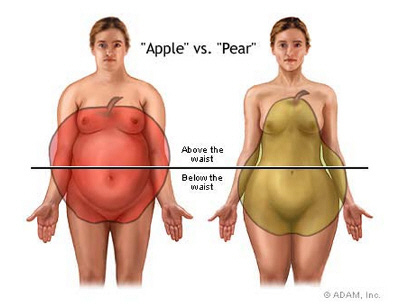Testosterone For Women
Testosterone for Women: The Benefits of Testosterone Replacement Therapy for Female Patients

Although sometimes it seems like men and women are entirely different creatures, there is so much that the two sexes have in common physiologically.
Although we often differentiate between men and women regarding the hormones Testosterone and Estrogen, both sexes utilize both hormones in their particular ways.
Males require a certain level of Estrogen to be optimally healthy, and females need a certain level of Testosterone to function correctly. It truly is a yin-and-yang sort of relationship.
Although men produce much more Testosterone than Estrogen, that little bit of Estrogen plays a huge role in male health.
The same goes for women. A little Testosterone goes a long way! Although women need much less Testosterone than men, Female Testosterone Deficiency can drastically alter feminine health and negatively impact life in numerous ways.
Vast and Various Benefits of Testosterone for Women
Testosterone provides the same forms of benefit to both males and females. It stimulates metabolism and generates energy. It helps the muscles stay strong and keeps sex desirable and exciting. Although Menopause is primarily associated with drastic changes in Estrogen Production, Menopause and Peri-Menopause are also characterized by a slow and steady decline in Testosterone Production.
By sustaining healthy testosterone levels during and after Menopause, women can benefit in various ways. Optimized Testosterone sustains muscle strength and tone, helping women stay stronger throughout their lives. Testosterone also promotes the structural integrity of the bones, helping stave off osteoporosis and prevent osteoarthritis.

In addition, Testosterone plays a significant role in mental health, encouraging positive self-perception and enhancing feelings of well-being and happiness. Women with healthy Levels of Testosterone during and after Menopause have been shown to experience fewer mood swings and emotional instability.
Perhaps most significant, Testosterone is primarily responsible for female sexual desire.
It may seem counter-intuitive, but Testosterone is actually what generates sexual desire in women, rather than Estrogen. Testosterone governs not only sexual desire but also controls sexual ability as well.
Women with Testosterone Deficiency are more likely to find sex at best lackluster and, at worst, actually painful.
What is Testosterone?
Testosterone is a member of the androgen family and is one of the primary steroid hormones produced by the human body. Testosterone is a cholesterol derivative, as are all hormones associated with sexual differentiation.
Testosterone is directly produced from a parent hormone known as DHEA. Although Testosterone has been regarded as the quintessential hormone which makes a boy become a man, Testosterone is hormonally active in the bodies of both men and women.
In males, Testosterone is primarily produced by the testes, but is also released to a lesser extent by the adrenal glands. The testes can produce testosterone much faster than any other organ in the human body. Females lack testes, but the ovaries also can produce Testosterone, albeit in far lower amounts. The female adrenal glands also produce Testosterone via the exact mechanism as male adrenal glands.
Low Testosterone Often Caused by Ovarian Complications
Because the female ovaries are primarily responsible for feminine Testosterone Production, women who have had their ovaries shut down or surgically removed are at significant risk of Testosterone Deficiency and the medical issues related to such hormonal decline.
Women with Normal Testosterone Production usually boast healthy sex drives. Still, women that suffer from Low-T suffer in the bedroom because their hormonal imbalance severely disrupts their sex drive, sometimes leaving women utterly disinterested in the act of sex.
Symptoms of Female Low-T Disorder and the Goal of Female Testosterone Replacement Therapy
Testosterone plays numerous roles in female health. Testosterone is essential to maintain the physiological strength of the bones. It also dramatically stimulates muscle tissue development, controlling the maximum level of physical strength and muscle tone in women.
Testosterone, in addition to Human Growth Hormone and other hormones, also stimulates proper metabolism, helping prevent and postpone fatigue, and allowing an individual to work out harder or longer.
Outside the weight room, proper Testosterone Levels help both women and men remain bustling with energy throughout the day. In addition to dopamine and other hormones related to proper mental health, Testosterone helps promote a positive outlook on life.
Although Testosterone is best known for its association with muscle health and development, the hormone is also the central hormone regarding female libido and sex drive. Testosterone is not only responsible for promoting a yearning for sexual fulfillment, but it also directly impacts a woman's pleasure regarding sexual activity.

Healthy Testosterone Levels heighten the sensitivity of both the clitoris and the nipples. Women with Low-Testosterone often have trouble achieving orgasm because Declining Testosterone Levels can numb the physiological response to sexual stimulation. Testosterone not only puts a woman in the mood; it is the hormone that allows for any form of sexual fulfillment.
Testosterone and Menopause
Although Menopause and Peri-Menopause are primarily conceived about their significant impact on Estrogen Production, the feminine mid-life change also leads to significant changes in the production of other hormones such as Testosterone. Menopause impacts Testosterone Production much more gradually than it affects Estrogen secretion.
Although the change occurs more slowly regarding Testosterone Release, it is common for women to produce fifty percent less Testosterone after Menopause than before Peri-Menopause began.
In numerical terms, just after puberty, most young women have a Testosterone Level that hovers around seventy nanograms per deciliter. By the time Menopause occurs, Daily Testosterone Production drops to forty nanograms per deciliter or less.
Although these changes occur similarly in every woman, how the body responds to that single chemical change can vary tremendously. Every woman's internal physiology is unique, and many women begin to experience significant declines in physical health or sexual desire due to this hormonal change. However, other women may not experience a significant change in sexual desire at this point in their lives.
Women who go through the process of hysterectomy or oophorectomy are at an even greater risk of experiencing issues due to Low Testosterone. Shutting down the ovaries separates the body from its primary source of Endogenous Testosterone, drastically reducing Testosterone Production to a rate far below a woman that has experienced Menopause with her ovaries intact and otherwise functional.
Stress and Testosterone Production
Stress can also impact the production of Testosterone in women. Testosterone is a member of the steroid family, and all of these hormones are related and interconnected because they are made up of the same components and utilize the same pool of resources. Under normal circumstances, a general equilibrium set encourages optimal health.
As we grow older, or if we allow our health to deteriorate, our body's ability to maintain that equilibrium declines. Although we often think of stress as a purely emotional response, stress produces an intense physiological response that can quickly become pathological.
Everyone experiences a certain level of stress in their life. Still, if you allow stress to take control, you can alter your internal hormonal chemistry, negatively impacting your short-term health and increasing your risk of long-term mortality.
Testosterone, Stress, and Cortisol
Stress primarily affects health by stimulating the production of a hormone known as Cortisol. Cortisol is beneficial regarding short-term stress because it adapts the body to situations where an individual is at immediate risk. It also drastically changes the human perception of pain, allowing us to function even in times of great physical or emotional stress.
The problem with Cortisol, however, is that the body primarily produces Cortisol by diverting DHEA from Testosterone Production to Cortisol Production. Long-Term stress debilitates the human body's ability to produce natural Cortisol and can lead to severe Testosterone Deficiency in both men and women.
In addition to this, Cortisol also directly negatively impacts physical and mental health over time when released in excess. It encourages unhealthy cholesterol levels, increases feelings of fatigue, and has adverse effects on long-term pain management if stress is not controlled over time.
Symptoms of High Cortisol and Low Testosterone
Increased stress levels can also contribute to the early onset of the many symptoms of Peri-Menopause as a woman approaches her early 40s. High levels of Cortisol, combined with Low Levels of Testosterone, can directly lead to the development of the following symptoms:
- Reduced Energy and Increased Fatigue
- Increased Wrinkles and Decreased Skin Health
- Brittle and Thinning Hair
- Increased Risk of Osteoporosis
- Atrophy of Muscle Tone
- Increased Development of Adipose Fat
- Reduced Libido
In addition to stress and age-related Testosterone Decline, certain pharmaceutical drugs can also hinder the body's ability to produce Testosterone appropriately. Any surgery directly impacting the ovaries can also lead to a decline in Testosterone.
How do I Cure Female Testosterone Deficiency?
BioIdentical Testosterone Hormone Replacement Therapy is an easy and effective way to alleviate and resolve issues related to Feminine Low-T. There are simple tests that can uncover your ability to produce Endogenous Testosterone. A medical professional, like the physicians at the Conscious Evolution Institute, can provide you with an accurate diagnosis of your hormonal balance.
If you are shown to have a legitimate Testosterone Deficiency, our clinic can provide you with Testosterone Replacement Treatments to resolve your hormonal imbalance.
Types of Testosterone Therapy
Our physicians and clinical specialists will work with you to design a program that fits your needs and your budget to help you live a happier, healthier life. There are a number of different means by which to deliver Testosterone HRT. Originally, Testosterone could only be delivered by injection, but today, there are a number of different treatment options, including:
Testosterone Injections - These injections are delivered directly into the muscle tissue. Some treatment programs require weekly shots, while other Testosterone blends may only be administered bi-weekly.
Testosterone Creams - Dermal Testosterone Gels work by simply massaging Testosterone into the skin, where the hormone dissolves quickly and is processed by the body. Where Testosterone Injections are generally weekly or bi-weekly, Testosterone Dermal Creams are applied more frequently.
Testosterone Sprays - One of the newest forms of Testosterone Delivery is via spray. Testosterone sprays work similarly to Testosterone Creams, but Spray Testosterone is administered to the body via an aerosol mixture which is more quickly absorbed into the body. Although Testosterone Sprays work similarly to creams, there is less mess, and the patient spends less time administering the medication and waiting for it to dry.
Testosterone Sub-Dermal Implants - Another relatively new form of Testosterone Hormone Treatment comes in the form of implantable pellets which release Testosterone just under the surface of the skin. These pellets do not affect the area's appearance in any way and deliver Testosterone for the longest time per treatment compared to any other therapy.
Your physician will make a small incision and place the beads under the skin. These beads provide a healthy dose of Testosterone per day, and the pellets release the hormone slowly and steadily over weeks.
Testosterone Patches - Testosterone Patches are placed upon the body and held by adhesive glue. These patches deliver Testosterone directly to the body over time, allowing for a slow and steady release of the hormone. These patches are generally replaced daily and provide Testosterone in a manner more steady than perhaps any other method besides the Testosterone Pellets.
The Conscious Evolution Institute: Patient Tailored Hormone Replacement Therapy
When you talk to your Hormone Replacement Doctor, you can choose the option which sounds most appropriate for your case. In addition to providing Testosterone Treatments, our staff will also tailor a health and wellness regimen for you to get the most out of your treatment.
Our staff will provide or recommend minerals, vitamins, and supplements to optimize your physiological health and help you make general life choices that will further improve your life. We also have nutritional specialists who will work with you to design a diet plan to help you drop the pounds if you are overweight or just help you maintain a healthy and natural body weight.
Our staff can also help you create a fitness and workout regimen that will help you make the most out of your increased energy and motivation to tone and shape your body and preserve a more robust, healthier figure as you age.
We discussed earlier how stress is an issue that severely affects Testosterone Levels and compounds issues related to Testosterone Deficiency. We also provide counseling on relieving stress in your life and adapting to everyday challenges contributing to that stress. Numerous methods work to relieve stress.
Physical therapies such as yoga calm the mind by encouraging a focus on muscle positioning and flexibility. Meditation is another option that resolves stress by teaching an individual how to calm the mind and emphasizing cognitive control. Even simple things in our daily life that we often overlook, such as time and crisis management, can play a decisive role in resolving excess stress.
All of this is combined with our Clinically Tested Testosterone Hormone Replacement Therapy to help you enjoy the health benefits of a healthier life and encourage the various physical, mental, and sexual benefits of Testosterone Creams, Patches, and Injections.
How Does Testosterone Benefit the Body?
We mentioned earlier that Testosterone is considered the primary male androgen produced by the human body. However, women need the Hormone just as severely to preserve their natural physiological health throughout their lives.
Female Testosterone Levels peak around the age of twenty, and Natural Female Testosterone Production declines slowly throughout the rest of their lives. This natural decline in Testosterone Levels occurs more quickly than in males, and by the time a woman is in her forties, Normal Testosterone Production can drop by as much as fifty percent.
Male Testosterone Benefits
In males, Testosterone is connected with a number of physiological functions:
- Testosterone encourages the natural development of boys into men due to puberty, increasing muscle mass and body hair, and changes in vocal tone, physical assertiveness, and aggression.
- Testosterone also produces and maintains a normal and healthy sex drive. Without healthy Testosterone Levels, Male sexual ability and desire potentially decline rapidly, dependent upon the severity of the deficiency. Severe Low-T can even result in reduced fertility or the inability to become aroused.
- Low Testosterone can also reduce competitiveness and assertiveness, leaving a man less in control of his own life. Testosterone plays a significant part in the natural male desire to compete and succeed. Men in many professions rely on their Testosterone to achieve their best, whether or not they realize it.
- In correlation with this loss of assertiveness, males can also experience increased feelings of apprehension, self-doubt, and depression. Although male patients often become less assertive and aggressive overall, this can lead to increased feelings of irritation and annoyance, which can cause a man to become more socially or emotionally isolated from those around him.
- Testosterone Deficiency in men also leads to changes in the structural foundations of the body: the muscles and bones. Testosterone is the primary hormone that causes men to be stronger than women. As Testosterone Levels Decline, men often find that their ability to build and maintain muscle mass is reduced severely. In addition to this, the bones rely on Testosterone to maintain their firmness and strength, and Testosterone Deficiency can cause the bones to weaken and become less resistant to stress and more prone to fractures and breaks with age.
Female Testosterone Benefits
In females, Testosterone plays a number of significant roles, which in many cases are similar to the roles played by Male Testosterone.
Testosterone Enables Female Sexuality
Although Estrogen is the primary hormone associated with female puberty and sexual development, sexual ability, desire, and arousal are intricately linked to Testosterone Levels.
When Testosterone Levels become depleted, females suffer intense and unwanted changes in their sexuality. The innate desire for romantic activity falls and can leave certain women completely disinterested.
Also, women who experience Testosterone Deficiency have a seriously reduced ability to experience pleasure in sexual activity, which can not only eliminate the ability to climax but can numb the body to the joy of sex.

Finally, Low-T can reduce the feminine ability to perform in the bedroom. Women have to experience arousal to be ready for sex, although many (or even most) men don't fully realize it.
Testosterone promotes the physiological changes that prepare the female body for sexual activity.
Testosterone production is what creates feminine lubrication, which encourages successful penetration. Testosterone also promotes the deepening of the vagina via the retraction of the uterus, which allows and encourages more profound, more satisfying sex for both partners.
Without Testosterone, regular sex can become almost impossible without proper lubrication and other necessary physiological reactions to arousal.
Testosterone Reinforces the Bones
Like men, Testosterone is also associated with bone health. Although estrogen is more important for bone health during the aging process for women, Testosterone Deficiency also inhibits the healthy maintenance of bone tissue.
Osteoporosis is one of the most dangerous physiological disorders associated with the aging process, primarily due to how insidious the progression of the disease happens.
Osteoporosis is incredibly difficult to detect but can have an incredibly detrimental and even life-threatening effect on the body's physical integrity. Osteoporosis is the result of any health issue which leads to the overall leaching of calcium and other minerals from the bones, leaving them porous and incredibly prone to fractures and breaks.
Testosterone primarily encourages the healthy formation of bone via organs known as osteoblasts, which recycle aging bone material and renew it through a process known as remodeling. Without proper Testosterone levels, structures known as osteoclasts become dominant.
These structures play an essential role in bone health because they pull aging calcium and other minerals from the bones to be processed and recycled by osteoblasts. Osteoporosis arises because Testosterone Deficiency causes the osteoclasts to leech these minerals from the bones faster than they can be recycled, which slowly, yet dangerously, weakens the bones in the process.
Testosterone Prevents Age-Related Weight Gain
Testosterone Deficiency encourages increased weight gain in women due to the increased development of adipose fat. Testosterone is integral to a healthy metabolism, along with Human Growth Hormone.
Testosterone encourages more considerable, energy-demanding muscles, speeding up fat breakdown by increasing overall metabolism. Testosterone also plays a role in helping control the balance of the feminine hormones Progesterone and Estrogen.
When Estrogen begins to fluctuate during and after Menopause, Testosterone plays an even more significant role in hormonal balance, preventing the body from accumulating too much Estrogen with Progesterone.
Although levels of both Estrogen and Progesterone decline as a result of Menopause, the decline in Progesterone tends to be sharper, especially when Testosterone Levels are particularly deficient. Estrogen dominance encourages the onset of weight gain and obesity in both sexes.
Women have a naturally higher BMI than their male counterparts because of a combination of naturally higher Estrogen levels and lower Testosterone Levels, and the female body is designed around that fact. Testosterone Deficiency unbalances the equation and puts women at risk for rapid weight gain.
Healthy Testosterone Levels Encourage Heart Health
Testosterone also protects the heart in both men and women. Males naturally produce enough Testosterone throughout their lifespan, so Testosterone Deficiency starts to impact heart health much later than females.
Early hypotheses regarding Testosterone assumed that Testosterone was the reason why men tended to deal with cardiovascular issues at an earlier age. Still, all evidence shows that Normal Testosterone Levels have a restorative effect on the heart's health.
For women, age-related changes in Testosterone Levels can have a much more dangerous effect on the heart. Studies have shown that Testosterone Replacement Therapy can increase the heart's capacity for exercise and reduce the risk of heart failure in healthier patients.
Testosterone HRT may also partially relieve the adverse effects of heart failure among female patients that already deal with the disease. Low Testosterone levels are also highly correlated with increased risk for coronary artery disease and poor cholesterol levels in both sexes.
Testosterone HRT is About Hormone Optimization
Testosterone Hormone Replacement Therapy can increase internal Testosterone Levels to a healthy point of balance. For Men, Testosterone is effective on its own as a means to restore waning Testosterone. Still, for women, Testosterone alone is not approved by the Food and Drug Administration for use in female patients. For women, Testosterone must be used in combination with Estrogen to provide maximum benefit without impacting the therapy's safety.
Also, Testosterone should only be used in adequate doses to restore naturally feminine levels of Testosterone production. Testosterone Overdose in women can result in male-like traits such as vastly increased muscle mass, body hair, and a deepening of the voice.
Testosterone Abuse can also adversely affect heart health, increasing the risk of heart disease and raising cholesterol. Only optimal use of Testosterone has been shown to increase the heart's health in both sexes, and both Testosterone Deficiency and Testosterone Abuse negatively impact the heart.
Testosterone Replacement Restores Healthy Testosterone Levels
The goal of the Conscious Evolution Institute regarding Testosterone and Human Growth Hormone Replacement Therapy is to restore physiologically youthful levels of the two hormones to benefit patients suffering from the symptoms of Age-Related Hormonal Decline.
There is growing evidence that restoring natural feminine Levels of Testosterone can produce significant benefits to female patients while not causing significant health risks due to the treatment.
Suppose you are a woman having trouble lighting a fire in the bedroom or feel that you may suffer from Age-Related Testosterone Deficiency. In that case, we invite you to call the Conscious Evolution Institute today for a free consultation!
Which Women are Most Likely to Experience Testosterone Deficiency?
Women That Have Had Their Ovaries Removed
Women that have had their ovaries surgically removed are likely to experience significant issues as a result of Testosterone Deficiency. This medical procedure is known as an oophorectomy. The removal of the ovaries leads directly to a sharp and significant decline in the natural production of Testosterone because the ovaries are the primary glands that secrete the hormone.
Women with Nonfunctional Ovaries
Women who have had to undergo chemotherapy sometimes have ovaries that have ceased functioning correctly. These patients can experience severe Testosterone Deficiency as soon as their ovaries become dysfunctional.
If chemotherapy has completely shut down the ovaries, women can utilize Testosterone Hormone Treatments at any age. Testosterone Treatments are generally not recommended for any patient in an immediate position to conceive. Still, in the case of younger yet infertile women, this is not an issue.
Women with Secondary Hypogonadism
Women with certain hypothalamic or pituitary insufficiencies often suffer from Testosterone Deficiency. Although in women, Testosterone is produced by the adrenal glands and the ovaries, the production of Testosterone is mainly controlled by hormonal messages sent from the pituitary and hypothalamus.
The hypothalamus uses a hormone known as Gonadotrophin-Releasing Hormone to deliver the command to the pituitary that increased levels of Testosterone are needed. The pituitary then secretes a hormone known as a luteinizing hormone in response to the message from the hypothalamus.
Luteinizing hormone then travels through the bloodstream to the ovaries and adrenal glands and directly stimulates the production of Testosterone. In males, luteinizing hormones travel to organs known as Leydig Cells within the Testes, which also produce Testosterone. Any deficiency of Luteinizing Hormone or Gonadotrophin-Releasing Hormone can directly cause Testosterone Deficiency in female patients.

This form of Testosterone Deficiency is known as Secondary Hypogonadism. Although multiple treatment options may resolve this disorder more directly, Testosterone Replacement is a commonly used treatment option to alleviate the symptoms of Low-T among female patients.
Menopausal Women, or Women Approaching Menopause
Women currently experiencing Peri-Menopause or Menopause are at enhanced risk of Testosterone Deficiency. Everyone knows about the drastic changes which occur in Estrogen Levels as a result of Menopause, but did you know that Menopause also affects the production of other hormones?
Most female patients suffering from Low-Testosterone experience the disorder for reasons related directly to the natural process of aging.
Testosterone Levels begin to drop more quickly during the years associated with Menopause, which can exacerbate issues related to Menopause. If Estrogen Treatments don't seem to resolve the side effects of Menopause or Peri-Menopause appropriately, you may also suffer from dwindling Testosterone Levels.
Testosterone Deficiency generally becomes symptomatic in the three years before Menopause occurs, as well as the five years after Menopause.
Which Women Should Not Consider Testosterone Replacement Therapy?
Pregnant Women or Women that May Become Pregnant
If you are pregnant or are considering pregnancy, you should not use Testosterone Replacement Therapy. Testosterone can negatively impact the female fetus, causing it to develop masculine traits. Only use Testosterone before Menopause if you are confident that pregnancy is not an issue in your particular case. If you are sexually active, you should only use Testosterone Treatments with highly effective birth control.
Those with Breast or Uterine Cancer
Women with uterine or breast cancer should not consider Testosterone Treatments because Testosterone has not been proven safe in these patients. However, there is currently no evidence that Testosterone Therapy causes these forms of cancer.
Although there is not enough evidence to suggest that Testosterone is appropriate, new research suggests that appropriate doses of Testosterone may have the ability to reduce the risk of breast cancer and cardiovascular disease. Testosterone is hypothesized to protect against breast cancer by slowing down the rate at which breast tissue cells replicate.
Women that Have Experienced These Cancers in the Past
If you have a history of uterine or breast cancer, you should avoid Testosterone Injections, Creams, and Sprays. Although these forms of cancer may be in remission, there is no definitive scientific evidence that Testosterone is safe for patients that have struggled with these cancers in the past.
Women with Cardiovascular Disease
Females that are suffering from heart disease should avoid Testosterone Treatments. Although there is evidence that Testosterone Replacement may benefit older patients with heart disease, the treatment option needs further analysis and study before it can be recommended. Check back on this one.
There will likely be sufficient evidence to support this treatment in a few years. Testosterone Overdose, on the other hand, is dangerous for male and female patients because of the increased risk of heart disease.
Those that Struggle with Highly Elevated Cholesterol
Women with High Cholesterol should not use Testosterone Creams, Patches, or Injections until they control their cholesterol levels. Medical use of Testosterone in women has been shown to cause a slight increase in cholesterol. One study suggests that the increase may be around six percent.
If you have your levels of cholesterol controlled, this should not be an issue, and the medical benefits of Testosterone should outweigh the negatives. Still, if you have high cholesterol, it may be in your best interests to control the medical issue or seek another form of therapy. It should be noted that research regarding Women, Testosterone, and Cholesterol is pretty preliminary, and scientific theories are subject to change.
Those with Liver Problems Should Avoid Testosterone Treatments
Patients with liver disease should not use Testosterone. Testosterone Hormone Replacement Therapy does not hurt the liver in healthy patients. Still, patients with livers that are not fully functional as a result of liver disease or other medical issues involving the organ may be at an increased risk of health complications because their bodies are not up to the task of processing increased levels of hormones such as Testosterone.
Note: Never Take Testosterone Orally!
It should be noted that Testosterone should never be orally ingested because Oral Forms of Testosterone have been linked to liver failure and other liver complications. Testosterone is a natural hormone produced by the human body, and the digestive system is not designed to process Testosterone pills.
Long-term abuse of Oral Testosterone can be hazardous, and we recommend against using this product.
On top of that, Oral Testosterone is not practical because the stomach breaks down Testosterone into component amino acids, negating direct benefits associated with other Bio-Identical Hormone Treatments. In other words, Oral Testosterone is a scam.
Testosterone HRT: The Best Choice for Female Sexual Dysfunction
For many women that suffer from Low-T, Testosterone Hormone Therapy has an immense effect on the sex drive and everything associated with it. Testosterone HRT can make sex exciting again and not just a chore. Do you make excuses when your partner is in the mood for love?
Do you still love your partner but feel like the spark has evaporated for reasons you cannot readily explain? This is very likely the result of Testosterone Deficiency.
Before choosing Testosterone Creams, Gels, or Patches to resolve sexual dysfunction, we recommend that you be sure that your sexual dissatisfaction is not the result of other issues which may be hurting your life or your love life. Testosterone Replacement Treatment is not an antidote to an unhealthy or incompatible relationship; it is a medical treatment that resolves innate hormonal issues which leave you unable to enjoy life in the bedroom.
Testosterone Does More Than Just Light Up the Bedroom
Testosterone with Estrogen has been proven to be able to alleviate mild depression, reduce feelings of stress, and increase overall well-being, but before you choose Testosterone HRT, come to your doctor with the confidence that your romantic issues are not the result of interpersonal problems that hinder your ability to enjoy the company and advances of your partner.
If Low-T is the primary cause of your inability to be passionate in the bedroom, you will likely experience a number of positive benefits. Testosterone Replacement has been scientifically proven to increase the frequency of sexual fantasy and thought.
In addition to this, Healthy Testosterone Levels prime the female body for sexual activity, preparing her body for sex and increasing her sensitivity to foreplay and penetration. Testosterone HRT can tremendously enhance libido in male and female patients with Low Testosterone.
Every Woman Responds to Testosterone in a Unique Way
Scientific studies have shown a strong correlation between Female Testosterone Levels and sexual desire, but this link is not definitive, and every woman is different. Some women with relatively Low Testosterone can have burgeoning sex drives, while others with High Levels of Testosterone may have an average or low libido.
The highest correlation between sex drive and Testosterone seems to be intrapersonal and over time. The further away a woman is from her peak Testosterone levels, the more likely she will experience bedroom deficiencies.
Of course, this isn't always the case, and some women may survive Testosterone Decline with a voracious appetite for sex. Still, if your sex drive seems to be decreasing as you grow older, Testosterone Deficiency is likely the root cause.
Testosterone Hormone Replacement Therapy is about increasing Testosterone Levels conscientiously to restore desire, rather than seeking to reach some golden value that applies to all women.
Reevaluate your Testosterone Status Every Six Months
For Women, Testosterone Hormone Replacement Therapy is only initially recommended for six months. At least every six months, you should make a new appointment with your doctor to ensure that the therapy is still needed for a longer time.
Beyond six months, the risks of Testosterone HRT can increase slightly in female patients. It is up to your physician to properly assess the risks and  benefits of continued therapy. For many patients, one six-month period of Testosterone Treatment may be effective, especially for patients undergoing Peri-Menopause or Menopause that experience more severe symptoms of Testosterone Deficiency due to the severity of hormonal changes going on in their body so quickly.
benefits of continued therapy. For many patients, one six-month period of Testosterone Treatment may be effective, especially for patients undergoing Peri-Menopause or Menopause that experience more severe symptoms of Testosterone Deficiency due to the severity of hormonal changes going on in their body so quickly.
Certain, Potentially At-Risk Patients Should Be Cautious with Testosterone
To date, there is no clear and definitive evidence of how Testosterone Replacement negatively affects cardiovascular disease, breast cancer, or proper blood clotting. As a result, patients at increased risk for these issues must be incredibly cautious and open with their prescribing physician regarding their medical history.
There is theoretical evidence that the risk of these medical issues may be increased because some testosterone in the body is naturally converted to Estrogen. Some Testosterone Replacement Therapy Regimens may include antagonists which discourage the conversion of Testosterone into Estrogen.
One of the primary reasons that Testosterone Treatments must be monitored every six months is because it is essential to ensure that Estrogen Levels stay healthy and normalized to minimize the risk of adverse side effects.
Symptoms of Female Testosterone Overdose
Although Testosterone Hormone Replacement Therapy can be an effective treatment for various symptoms related to Low-T, specific symptoms are associated with the abuse and overuse of the drug.
We must reiterate that the goal of Testosterone Replacement Therapy is not to inundate the body with Testosterone but to restore hormone levels to a more physiologically appropriate rate for a healthy woman or man.
Suppose you experience any of the following symptoms. In that case, you are taking a dose of Testosterone that is too high and should immediately consult a doctor to adjust your dose or suspend therapy:
- Abnormal issues with aggression or anger
- Increased hair growth across the body
- Excessively oily skin or increases in acne
- Increased size of the clitoris
- Reduction in breast size
- Unnatural changes in menstruation
- Deepening voice or the development of a rasp
All of these issues are entirely reversible, except that in some cases, voice changes can be permanent.
Important Note Regarding Compounded Testosterone
Although there is ample evidence that Testosterone can be an effective treatment for female patients suffering from Low-T, there are no clinical formulations officially on the market that feature Testosterone intended for women. Female Testosterone Hormone Treatments are designed and created exclusively by compounding pharmacies, making particular blends of Testosterone and Estrogen for female consumption.
These compounds are safe and effective, but since there is no official Testosterone Treatment designed and explicitly approved by the FDA, there is no officially recognized average dose or diagnostic test for Female Testosterone Replacement.
Because of this, Testosterone Dosage is generally adjusted according to the symptoms experienced by the patient, and guidelines regarding Testosterone Testing and Blood Work are agreed upon by medical professionals who specialize in these types of treatment and those that have tested the drugs in a clinical environment.
Testosterone Overdose Has Potentially Negative Consequences
Suppose you feel that Testosterone Hormone Replacement Therapy can help improve your life. In that case, it is vitally important that you understand that appropriate dosage is the key to achieving optimal results with minimal risk of side effects.
Many people use Testosterone and are amazed at the results. Because of their high level of satisfaction, some feel that if they only increased the dosage, the results could be even more fantastic.
This could be no further from the truth, especially in female patients. The Conscious Evolution Institute in no way condones the abuse of Testosterone by either Male or Female patients. We do not provide Bio-Identical Testosterone Therapy without proof and proper diagnosis of hormonal deficiency and  physiological need.
physiological need.
How to Resolve Female Low-Testosterone with the Conscious Evolution Institute
The Conscious Evolution Institute is fully equipped to help you relieve Low-T symptoms. Recombinant Testosterone HRT is the most effective tool to alleviate the effects of Testosterone Deficiency. Suppose your consultation suggests that you may suffer from a Deficiency of Testosterone. In that case, we can quickly and easily arrange for diagnostic testing to discover if our treatments are right for you.
Our clinic partners with the blood testing corporation LabCorp to provide you with quick and easy blood testing that can provide us with a clear image of your Testosterone Levels, as well as a number of other blood tests provided to assess your overall health condition.
If your blood testing shows that you suffer from Low-T and that there are no barriers that prohibit treatment, our kind and knowledgeable staff can use the data provided by your blood testing, personal history, and routine physical to recommend treatment options that they feel will provide the most potent benefit to both your health and your pocketbook.
Learn More About Testosterone
To find out more about Testosterone HRT, or any other therapies we provide, we encourage you to call or contact the Conscious Evolution Institute today. We provide initial evaluation and consultation at no cost to you, and we can answer any questions you have about the life-changing Hormone Replacement Treatments we offer.
References:
Testosterone Therapy - Men or Women
- What Are Normal Testosterone Levels For Men And Women Throughout Life? [Last Updated On: March 14th, 2024] [Originally Added On: May 26th, 2020]
- Top Tips For Boosting Testosterone Naturally [Last Updated On: November 6th, 2024] [Originally Added On: May 27th, 2020]
- The Testosterone Factor [Last Updated On: September 17th, 2023] [Originally Added On: May 28th, 2020]
- Testosterone Can Help Relieve The Menopause Symptom Of Hot Flashes [Last Updated On: March 13th, 2024] [Originally Added On: May 29th, 2020]
- How Does Low Testosterone Cause Infertility? [Last Updated On: March 1st, 2024] [Originally Added On: May 30th, 2020]
- The Benefits Of Testosterone Therapy For Prostate Cancer [Last Updated On: March 12th, 2024] [Originally Added On: May 31st, 2020]
- Is Testosterone Replacement A Valid Diabetes Treatment? [Last Updated On: April 6th, 2024] [Originally Added On: June 1st, 2020]
- Testosterone Shock Therapy May Be An Effective Prostate Cancer Treatment [Last Updated On: March 1st, 2024] [Originally Added On: June 2nd, 2020]
- Testosterone Replacement Therapy Is Safe For The Heart [Last Updated On: March 11th, 2024] [Originally Added On: June 3rd, 2020]
- Testosterone Replacement Therapy [Last Updated On: July 6th, 2023] [Originally Added On: June 4th, 2020]
- Testosterone Patches [Last Updated On: March 1st, 2024] [Originally Added On: June 5th, 2020]
- Testosterone Overview [Last Updated On: March 10th, 2024] [Originally Added On: June 6th, 2020]
- Testosterone Levels And Making Money [Last Updated On: October 19th, 2024] [Originally Added On: June 7th, 2020]
- Testosterone Enanthate [Last Updated On: October 18th, 2024] [Originally Added On: June 8th, 2020]
- Increased Awareness Of Low-t Helps Men Live Healthier Lives [Last Updated On: March 1st, 2024] [Originally Added On: June 9th, 2020]
- How Does Low-t Lead To Erectile Dysfunction? [Last Updated On: March 1st, 2024] [Originally Added On: June 10th, 2020]
- Testosterone Basics [Last Updated On: March 1st, 2024] [Originally Added On: June 11th, 2020]
- How Does Testosterone Impact Prostate Health? [Last Updated On: March 1st, 2024] [Originally Added On: June 12th, 2020]
- Testosterone And Other Sex Hormones Impact Asthma Response Dependent On Sex [Last Updated On: March 1st, 2024] [Originally Added On: June 13th, 2020]
- Recognizing Subtle Symptoms Of Testosterone Deficiency [Last Updated On: March 1st, 2024] [Originally Added On: June 15th, 2020]
- Testosterone Trivia [Last Updated On: March 1st, 2024] [Originally Added On: June 16th, 2020]
- The Health Benefits Of Testosterone And Sleep Are Interconnected [Last Updated On: March 1st, 2024] [Originally Added On: June 17th, 2020]
- How Can I Restore My Testosterone Production Naturally? [Last Updated On: October 13th, 2024] [Originally Added On: June 18th, 2020]
- Low-t Quiz [Last Updated On: October 12th, 2024] [Originally Added On: June 19th, 2020]
- Low Testosterone Might Mean Poor Sleep Need Testosterone Hormone Injections [Last Updated On: October 11th, 2024] [Originally Added On: June 20th, 2020]
- Low Testosterone Contributes To Frailty With Age [Last Updated On: October 10th, 2024] [Originally Added On: June 21st, 2020]
- Low Testosterone Affects A Third Of Young Men With Type 2 Diabetes [Last Updated On: October 9th, 2024] [Originally Added On: June 22nd, 2020]
- Japanese Testosterone Study Proves Physical And Psychological Benefits [Last Updated On: October 8th, 2024] [Originally Added On: June 23rd, 2020]
- Intramuscular Injections Are Safer Procedures [Last Updated On: October 7th, 2024] [Originally Added On: June 24th, 2020]
- Injecting Testosterone (im) [Last Updated On: July 6th, 2023] [Originally Added On: June 25th, 2020]
- Injectable Testosterone And Testosterone Cream [Last Updated On: April 6th, 2024] [Originally Added On: June 26th, 2020]
- Indiana Jones Vs. Rambo (hgh Testosterone) [Last Updated On: October 6th, 2024] [Originally Added On: June 27th, 2020]
- How Much Does Testosterone Control Men's Behavior? [Last Updated On: October 5th, 2024] [Originally Added On: June 28th, 2020]
- Getting To The Bottom Of Low-t Under-reported Sources Of Testosterone Deficiency [Last Updated On: March 15th, 2024] [Originally Added On: June 29th, 2020]
- How To Manage And Overcome Testosterone Deficiency [Last Updated On: October 4th, 2024] [Originally Added On: June 30th, 2020]
- Clomiphene Low-testosterone Andropause Treatment [Last Updated On: March 1st, 2024] [Originally Added On: July 1st, 2020]
- How Do Synthetic Chemicals Impact Testosterone Secretion? [Last Updated On: September 26th, 2024] [Originally Added On: July 2nd, 2020]
- Interest In Bio-identical Testosterone Is Skyrocketing [Last Updated On: October 3rd, 2024] [Originally Added On: July 3rd, 2020]
- Axiron Spray-application Testosterone Replacement Therapy [Last Updated On: October 2nd, 2024] [Originally Added On: July 4th, 2020]
- Andropause: Male Menopause [Last Updated On: October 24th, 2024] [Originally Added On: July 5th, 2020]
- Testosterone Deficiency Treatment Options [Last Updated On: September 29th, 2024] [Originally Added On: July 6th, 2020]
- The Facts About Testosterone Hrt For Low-t [Last Updated On: September 30th, 2024] [Originally Added On: July 7th, 2020]
- Misconceptions About Testosterone Replacement Therapy [Last Updated On: October 1st, 2024] [Originally Added On: July 8th, 2020]
- Testosterone Replacement Therapy Facts And Myths [Last Updated On: October 23rd, 2024] [Originally Added On: July 9th, 2020]
- Testosterone Injections For Testosterone Deficiency [Last Updated On: September 18th, 2022] [Originally Added On: July 10th, 2020]
- Testosterone Replacement Therapy May Help Aging Males Prevent Diabetes [Last Updated On: September 27th, 2024] [Originally Added On: July 11th, 2020]
- How Can Testosterone Hrt Improve My Life Via Quality Low-t Treatments [Last Updated On: October 22nd, 2024] [Originally Added On: July 14th, 2020]
- Frequently Asked Questions About Testosterone [Last Updated On: September 28th, 2024] [Originally Added On: July 15th, 2020]
- Bio-identical Testosterone Cypionate Injections [Last Updated On: September 24th, 2024] [Originally Added On: July 16th, 2020]
- All About Testosterone Creams [Last Updated On: September 21st, 2024] [Originally Added On: July 17th, 2020]
- Low Testosterone Treatment Protocols [Last Updated On: July 1st, 2024] [Originally Added On: July 19th, 2020]
- Testosterone Deficiency Drains Your Energy [Last Updated On: March 9th, 2024] [Originally Added On: July 21st, 2020]
- What Is Testosterone? [Last Updated On: September 19th, 2024] [Originally Added On: July 23rd, 2020]
- Eleven Signs Of Testosterone Deficiency [Last Updated On: June 29th, 2024] [Originally Added On: July 26th, 2020]
- Hypertension-Associated Cardiovascular Risks Increase Due To Both Low-T And High Testosterone [Last Updated On: April 17th, 2024] [Originally Added On: April 22nd, 2021]
- Everything to Know About Androgel [Last Updated On: June 26th, 2024] [Originally Added On: July 8th, 2021]
- Kinds of Testosterone Therapy – Which Is Right for You? [Last Updated On: June 20th, 2024] [Originally Added On: August 28th, 2021]
- This Study Says High Protein Diet May Suppress Testosterone Levels [Last Updated On: May 22nd, 2024] [Originally Added On: March 28th, 2022]
- Testosterone and Estrogen Deficiency Associated With Increased Risk of Rotator Cuff Surgery [Last Updated On: April 6th, 2024] [Originally Added On: April 26th, 2022]
- Low Testosterone Accelerates Aging [Last Updated On: June 19th, 2024] [Originally Added On: May 3rd, 2022]
- Low Testosterone Endangers Your Health [Last Updated On: April 6th, 2024] [Originally Added On: May 14th, 2022]
- Testosterone Helps Modulate Immune Activity in the Digestive System [Last Updated On: April 6th, 2024] [Originally Added On: May 18th, 2022]
- Did you know: Testosterone treats depression! [Last Updated On: December 25th, 2023] [Originally Added On: May 19th, 2022]
- Benefits of Fenugreek – Boost Testosterone and More [Last Updated On: April 6th, 2024] [Originally Added On: May 23rd, 2022]
- Testicle Tanning: What is Tucker Carlson Talking About? [Last Updated On: July 17th, 2024] [Originally Added On: June 3rd, 2022]
- Using Testosterone to Combat Memory Issues in Diabetics [Last Updated On: April 6th, 2024] [Originally Added On: August 16th, 2022]
- About 40% of Men Have Low-T – and it Doubles the Risk of Severe COVID [Last Updated On: May 28th, 2024] [Originally Added On: September 21st, 2022]
- The Foods To Boost Your Testosterone…And The Foods To Avoid [Last Updated On: December 25th, 2023] [Originally Added On: September 30th, 2022]
- Tlando Testosterone: An Innovative Oral Therapy for Low-T [Last Updated On: December 25th, 2023] [Originally Added On: October 1st, 2022]
- Testosterone Replacement Therapy (TRT) Explained [Last Updated On: July 9th, 2024] [Originally Added On: October 12th, 2022]
- Examining The Link Between Testosterone and Employability [Last Updated On: April 27th, 2024] [Originally Added On: November 8th, 2022]
- Standard Measure of Low Testosterone Doesn't Apply to Young Men [Last Updated On: June 10th, 2024] [Originally Added On: November 8th, 2022]
- Surprising Things that Cause Men’s Crashing Testosterone [Last Updated On: June 16th, 2024] [Originally Added On: January 5th, 2023]
Word Count: 6041







